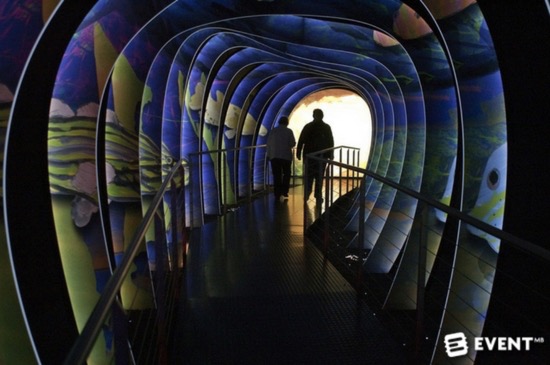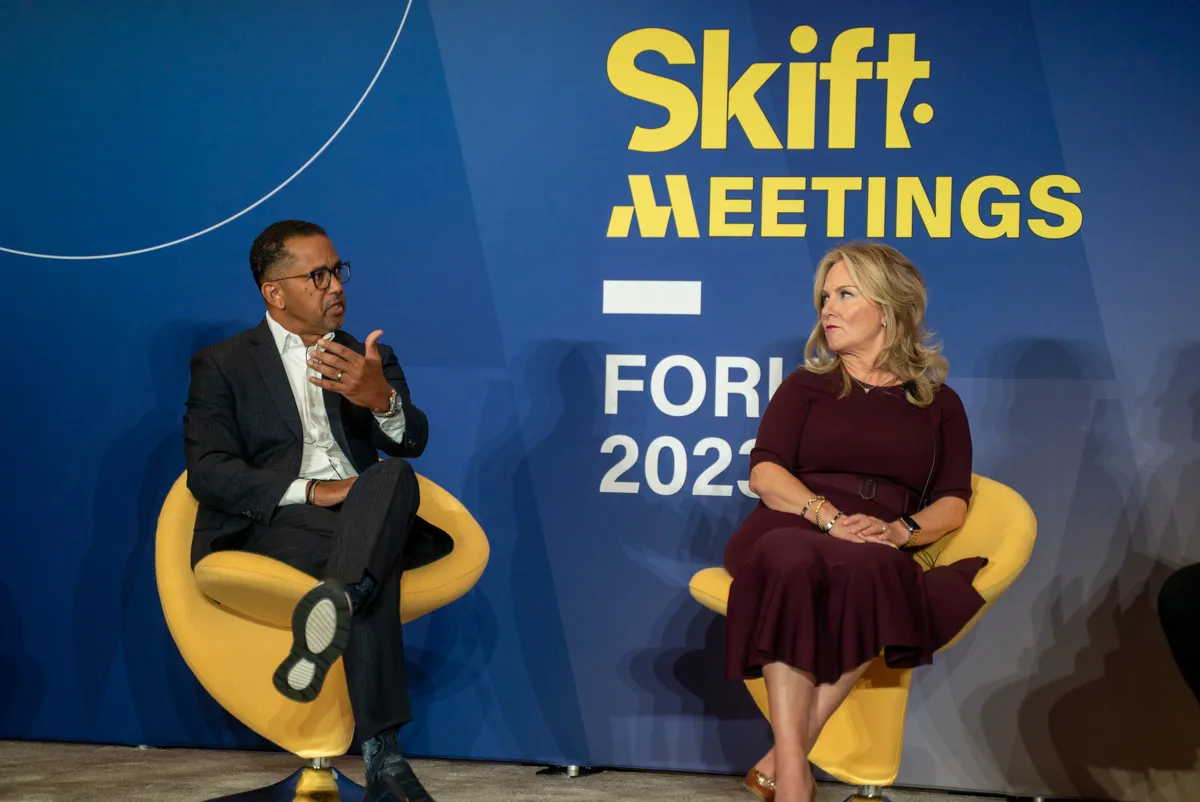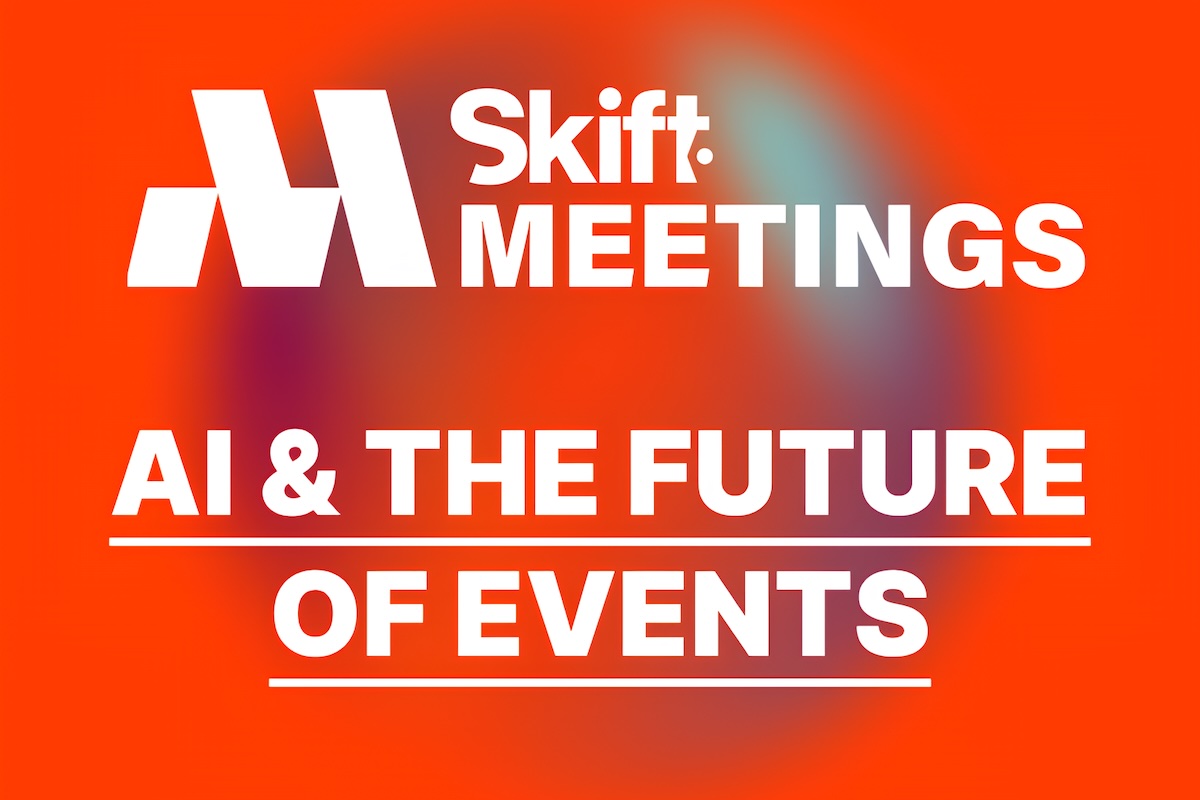More Brands Opt For Experiential Marketing While Ad Budgets Shrink

Skift Take
Experiential isn't just another marketing buzzword to be ignored by all and sundry. It's fast becoming one of the most heralded methods for driving sales, awareness and brand advocacy with plenty of data to back up its claims. This is great news for eventprofs because if anyone knows how to create a great experience that leaves a lasting impression, you need look no further than the event industry.
##abovethefold##
Traditional Advertising Is Dying
Excuse us for the sensationalist heading but nobody likes being bombarded by advertising and everyone knows it. On top of that, people are engaging with media in different ways. Fewer people are watching linear TV, listening to the radio and reading newspapers. Instead, they are consuming just what they want, when they want it. The audience is deliberately swerving advertising at all costs. Even internet advertising is suffering because people have either become ad-blind or they are using ad blocking software. Bad news, for brands and marketing agencies alike. Has the customer lost their love for the brand? Absolutely not. They're just seeking a more meaningful and memorable interaction.
What Is Experiential Marketing?
Simply put, experiential marketing is the confluence of marketing and events. Experiential activations aim to create long-term meaningful relationships between brands and audiences by way of creating a one-to-one experience.
Different types of activations range from small installations and pop-ups, right through to trade shows and music festivals. Every event is an experiential activation and in case you hadn't noticed, if you're an eventprof, you're already doing it.
If done correctly, experiential activations leave a lasting impression. People remember and talk about experiences that make them feel good. For any brand, that kind of association is worth its weight in gold.
Why Experiential Is So Important To Eventprofs Right Now
Brand marketers are really beginning to notice the value of experience and it's ability to nurture and grow audiences of advocates. A recent survey (mid-2017) by Freeman showed that 59% of CMOs who responded, recognize brand experience for its ability to create ongoing relationships with key audiences. Further to this, respondents also felt that brand experience was particularly effective for lead generation (54% of B2B marketers and 53% of brand managers) and increased sales (56% of North American and 50% of Asian marketers). The survey also found that over 90% marketers agree that brand experience delivers strong face-to-face interaction and more compelling brand engagement.
The same report also found that a growing number of marketers expect to allocate up to 50% of their marketing budgets to experiential over the next three to five years.
What Are The Main Challenges Facing Eventprofs?
Competition From Marketing Agencies
You might think that as an eventprof, you can rest on your laurels as budgets shift away from traditional advertising and into your domain but that would be a terrible mistake. With that extra budget comes extra competition - lots of it - from every PR, advertising, and marketing agency in the world. Bear in mind also that not every experiential activation needs to be a massive trade show or big budget blockbuster. Boutique agencies are great when it comes to being really creative with a smaller budget.
Complexity Of Planning And Running Events
A "build it and they will come" attitude towards creating activations just won't cut it. Like any marketing exercise or any other type of event, you need to start with strategy. Before you decide to put a barber shop, complete with quartet into Grand Central Station to help create advocacy for a brand of razors, think about what you're actually trying to achieve, who your audience is and what they want.
Along with the activation or stunt, think about the before and after. How are you going to get people there and how will you entice them to take part? Following the activation, how are you (or the brand you're working for) going to continue to grow that advocacy?
While seasoned event planners may revel in the complexity of events, this complexity combined with increasing competition has been enough to put some brands off. This is particularly evident in the publishing sector where many brands, including the Guardian and Telegraph appear to be trimming off the fat.
Or to put it another way: events are like sausages - you don't want to see them being made.
High Costs
A major part of defining your strategy for an activation is to have a completely clear idea of what the budget is. Just like any event, there are staffing costs, staging or equipment costs, technology costs and much much more. Not to mention all those little things you forgot about... Make sure budgets are crystal clear and as always, build in contingency for the unexpected.
In cases, such as expos, conventions, and festivals, some of the costs can be recouped by ticket sales and merchandise but this may not be appropriate for smaller activations trying to build brand affinity.
In Conclusion
Experiential marketing is where the smart money is going and many smart agencies are following it. This means that although the market is growing, it is also becoming more competitive, with many marketing and advertising agencies turning their hand to events.
The thought of the whole marketing world muscling in on events may seem a little scary to some but the opportunities of a bigger market, combined with the wealth of experience event planners already have, should give them a head start. For many marketers, this is a brave new world. For the seasoned event planner, this is all in a day's work.
Eventprofs, experiential marketing is your space. Own it.




